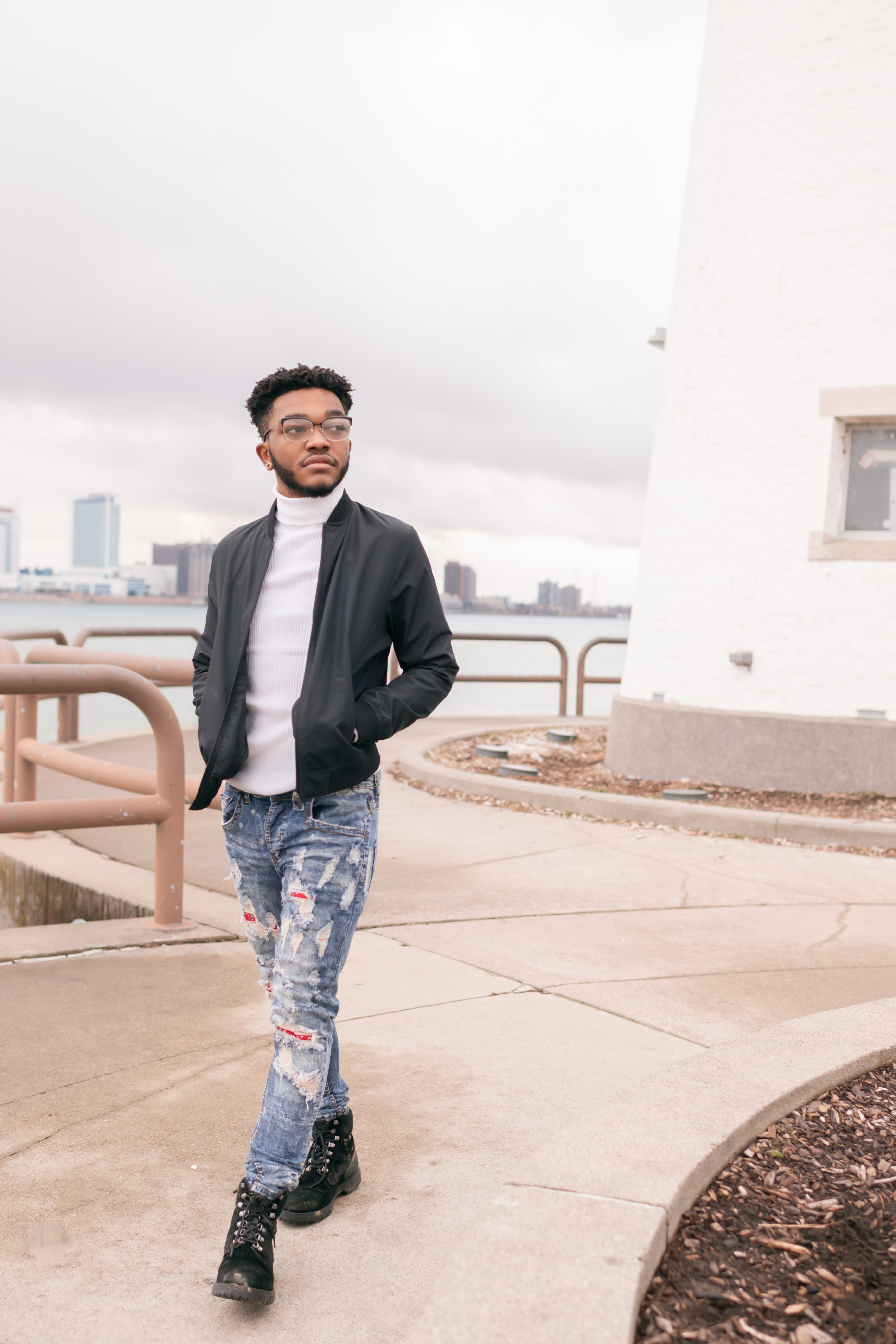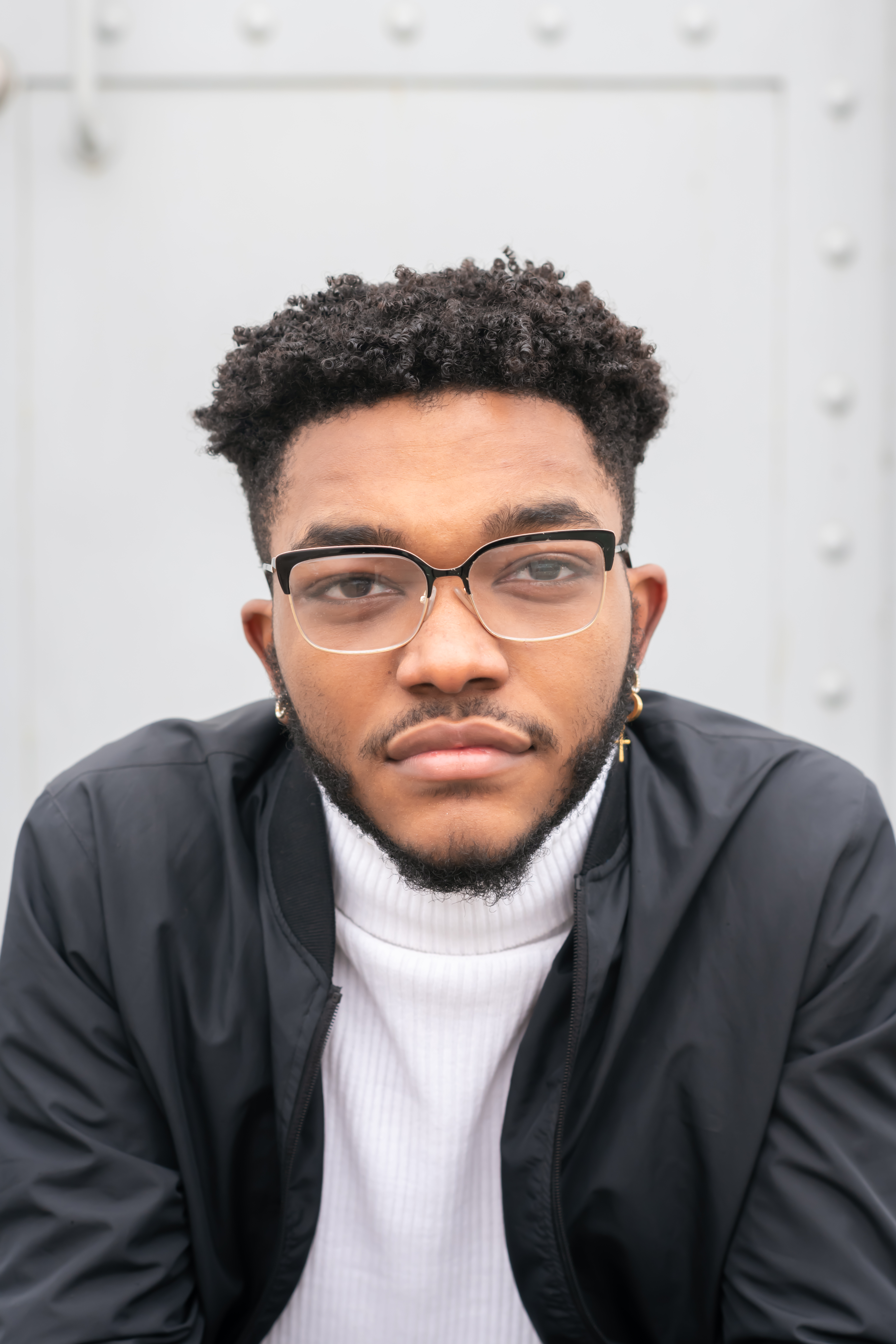Welcome to Transparent, a photo editorial series profiling Black mental health advocates who are breaking down barriers, increasing transparency, and changing the way mental health is perceived in the Black community. Salesforce and Thrive Global, with support from KPMG, have partnered to make change: to bring about positive mental health conversations in the Black community, to share strategies for seeking help, and to prioritize mental well-being.
By Dwayne Cole Jr., as told to Thrive Global Studios
Many of my family members have been diagnosed with some type of mental health condition, from major depression to bipolar disorder. Growing up, I remember feeling cast out or ostracized because we were different. We didn’t exactly fit the mold.
To me, mental health always seemed like something that could be used as a weapon against you. People in my community spoke about it in a demeaning way, like “something is wrong with you.” When I was younger, I remember going to my school’s special education classes to help the resource teachers, during my free time. I met students that were reluctant to go to therapy or to take medication. And realized that a lot of people felt uneasy about the special attention initially— the help made some people feel that the world saw mental health challenges as flaws or disabilities.
Meanwhile, I was put on a pedestal as the “normal child” because I was thought to have not had a mental health condition and was recognized as a star pupil. But that just didn’t seem right to me. It made me think, “What is normal, necessarily?” Having a mental health condition might make you different from someone else, but it’s not something you should feel bad about. I feel like the truth of the matter is we all experience the world differently, process things differently, and learn differently because of it. After coming to this realization it led me to believe that empowerment in our community should go hand-in-hand with healthy mental health practices like one-on-one counseling. Learning about my challenges with anxiety has taught me that.
Everyone has their own internal battles that the world doesn’t know about. For example, when I was younger and before I came out, some of my family would say stuff like, “Dwayne, you’re gonna be the one to grow up and marry a white woman.” Hearing things like that made me cringe, because I thought, first of all, I’m gay. Second, who’s to make all these speculations about who or what race I should or would be with? That said, once I was able, to be honest, and true to myself as a gay black man, I felt ten times better because it was my first step to gaining confidence in becoming the person I see myself being.

“Having a mental health condition might make you different from someone else, but that’s not something you should feel bad about. Everyone always has their own internal battles that the world doesn’t know about.”
For so long when I was younger, fear took over my life. “Are they gonna accept me? Are they gonna like me? What if they find out what I’m going through at home?” The fact that my parents supported me when I came out as gay kept me going. Just the thought of having people that accepted me made a huge impact on me as a black gay man and made the other hardships in my life seem non-existent.
Now I try to be that person for other LGBTQ+ young people at the Ruth Ellis Center where I’m a program manager. I support them and encourage them to think creatively about what they need to do to stay mentally healthy. Because of my experience, I’m an advocate for individuality and I encourage my community to trust in themselves and truly be themselves. Being comfortable with yourself and proud of your experiences, both good and bad, is one of the best ways to become mentally and emotionally healthy. I don’t believe in taking losses, I believe in learning lessons. But what you choose to do with the lessons is the real testament of your character.



